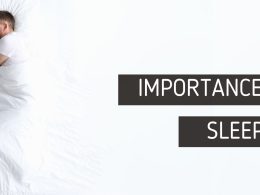Unlock Restful Sleep: Essential Sleep Hygiene Tips
As a sleep specialist, I witness firsthand the negative impact of poor sleep on people’s health and well-being. From fatigue and irritability to decreased concentration and weakened immunity, sleep deprivation takes a toll. But the good news is, you can significantly improve your sleep quality with a few simple changes.
This article introduces the concept of sleep hygiene, a set of practices that promote healthy sleep patterns. By incorporating these tips into your daily routine, you can fall asleep faster, stay asleep longer, and wake up feeling refreshed and energized.
Why Sleep Hygiene Matters
Sleep is a vital biological function essential for physical and mental health. During sleep, our bodies repair tissues, consolidate memories, and regulate hormones. When we don’t get enough quality sleep, we experience a range of negative consequences.
Here’s where sleep hygiene comes in. It’s like creating a healthy sleep environment for your body and mind. By establishing consistent sleep habits and routines, you can train your body to naturally fall asleep and stay asleep throughout the night.
Understanding Your Sleep Cycle
Our sleep is regulated by a natural internal clock called the circadian rhythm. This cycle is influenced by light exposure, so it’s important to get regular sunlight during the day. Understanding your sleep cycle can help you determine your ideal sleep schedule and wake up feeling refreshed.
Creating a Relaxing Bedtime Routine
Signal to your body that it’s time to wind down by establishing a relaxing bedtime routine. This might include taking a warm bath, reading a book, or practicing light stretches. Avoid stimulating activities like watching TV or using electronic devices for at least an hour before bed. The blue light emitted by these devices can disrupt your sleep cycle.

Optimizing Your Sleep Environment
Your bedroom should be a haven for sleep. Make sure it’s dark, quiet, and cool. Invest in blackout curtains, earplugs, and a comfortable mattress and pillows. Keep your bedroom clutter-free and use it only for sleep and intimacy.
Lifestyle Habits for Better Sleep
- Regular Exercise: Engaging in regular physical activity can improve sleep quality. However, avoid strenuous workouts close to bedtime.
- Healthy Diet: Avoid heavy meals, sugary drinks, and caffeine close to bedtime. These can disrupt your sleep.
- Manage Stress: Chronic stress can significantly impact sleep. Relaxation techniques like meditation or deep breathing can help manage stress and promote better sleep.
Debunking Common Sleep Myths
- Myth: A glass of wine before bed helps you sleep better.
- Reality: Alcohol may initially make you drowsy, but it disrupts your sleep cycle later in the night.
- Myth: Catching up on sleep on weekends makes up for sleep deprivation during the week.
- Reality: While occasional napping can be beneficial, chronically irregular sleep schedules disrupt your circadian rhythm.
Seeking Professional Help (if needed)
If you’ve tried these tips and still struggle with sleep, consult a healthcare professional. They can help identify any underlying sleep disorders and recommend appropriate treatment options.
Conclusion: Sweet Dreams Await!
By prioritizing sleep hygiene and incorporating these practices into your daily routine, you can significantly improve your sleep quality. Remember, a good night’s sleep is an investment in your overall health and well-being. So, dim the lights, create a relaxing environment, and embrace the power of a good night’s sleep!]












